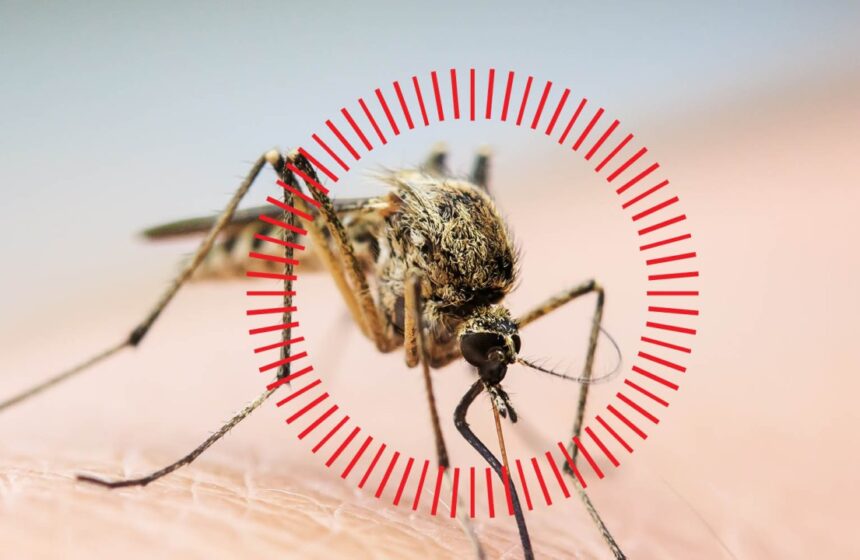Key Takeaways:
- Understand the risks posed by mosquito infestations in and around your home.
- Learn practical measures to reduce mosquito breeding grounds.
- Explore safe and natural methods to repel mosquitoes effectively.
Table of Contents:
- Health Risks of Mosquito Infestations
- Identifying Common Mosquito Breeding Grounds
- Preventive Measures to Reduce Mosquito Breeding
- Effective Natural Mosquito Repellents
- When to Seek Professional Help
Health Risks of Mosquito Infestations
Mosquitoes are more than just a nuisance; they pose significant health risks. Diseases such as dengue fever, malaria, and the West Nile virus are transmitted through mosquito bites, with dire consequences if not managed effectively. These mosquito-borne illnesses have dangers and broad reach, noting that even a single mosquito bite can lead to severe health issues. Professional services, such as mosquito control in Boston, can effectively mitigate these health risks by offering tailored solutions to combat and prevent infestations.
These diseases have symptoms that range from mild to severe and can complicate further if not addressed promptly. For instance, dengue fever can cause severe joint and muscle pain, while malaria can lead to life-threatening complications such as cerebral malaria. To avoid these health risks, it’s crucial to implement preventive measures effectively, thereby ensuring the safety and well-being of your family.
Identifying Common Mosquito Breeding Grounds
Mosquitoes breed in stagnant water. Identifying and eliminating these breeding grounds around your home is crucial to combating an infestation. Common areas include clogged gutters, bird baths, pet water bowls, and garden ponds. Surprisingly, even the smallest amount of standing water, such as that found in plant saucers or children’s toys left outside, can serve as a breeding ground. A good practice is to regularly inspect and clean these areas to disrupt the mosquito life cycles, making it difficult for mosquitoes to proliferate.
Moreover, ensuring that water in swimming pools and garden ponds is treated correctly can deter mosquito breeding. Regularly checking and maintaining these water bodies, adding mosquito dunks, and ensuring they are adequately chlorinated reduces the risk of mosquitoes laying eggs. Additionally, landscaping your garden to avoid water accumulation can ensure that water drains away quickly after rains, preventing breeding grounds from forming in the first place.
Preventive Measures to Reduce Mosquito Breeding
- Remove standing water from containers, old tires, and tarps. The first line of defense is to ensure there is no stagnant water. Also, regularly check for items like buckets and kids’ toys in your yard that can collect water.
- Repair leaky outdoor faucets and drains. Water from leaky faucets can pool and create a perfect breeding ground. Regular maintenance and checks can eliminate these potential hazards.
- Install screens on doors and windows to keep mosquitoes outside. Updating or repairing window and door screens is a cost-effective way to prevent mosquitoes from entering your home. This simple measure can be incredibly effective in maintaining a mosquito-free home.
- Use mosquito nets around beds and other living areas. For homes in high-risk areas, mosquito nets offer protection during the most vulnerable times, such as sleeping. They are handy for infants and the elderly, who may be more susceptible to mosquito-borne diseases.
Combined with other techniques, these preventive measures can significantly reduce the likelihood of a mosquito infestation. Adopting these practices helps protect your home and contributes to a healthier and safer community.
Effective Natural Mosquito Repellents
Using natural repellents is an eco-friendly way to keep mosquitoes at bay. Essential oils like citronella, eucalyptus, and lavender are known for their repellent properties. Citronella, in particular, is a popular choice for outdoor settings, often used in candles and sprays to ward off mosquitoes. Planting mosquito-repellent plants around your yard, such as marigolds and basil, can also be an effective strategy. According to a study, these methods can significantly reduce mosquito activity.
Beyond essential oils and plants, other natural methods can be equally effective. For instance, garlic spray repels mosquitoes due to its strong odor. Maintaining a well-groomed garden and lawn can deter mosquitoes, as they prefer overgrown and shaded areas. Using coffee grounds in stagnant water sources can prevent larvae from developing, providing additional protection.
Combining these natural methods with preventive measures can create a robust defense system against mosquitoes, reducing the need for chemical interventions and fostering a healthier environment for your family.
When to Seek Professional Help
Sometimes, more than DIY methods are needed to control a severe mosquito infestation. In such cases, contacting pest control professionals can be the best action. They have the expertise and resources to handle the problem effectively and ensure long-term solutions to keep your home mosquito-free.
Pest control professionals use a combination of methods tailored to the specific needs of your environment. They can identify hidden breeding grounds, treat them appropriately, and advise maintaining a mosquito-free space. Their services often include regular monitoring and treatments, ensuring that any resurgence of mosquitoes is promptly dealt with.
Professional mosquito control is a worthwhile investment for those with persistent mosquito problems or living in high-risk areas, providing peace of mind and a safer living environment.






